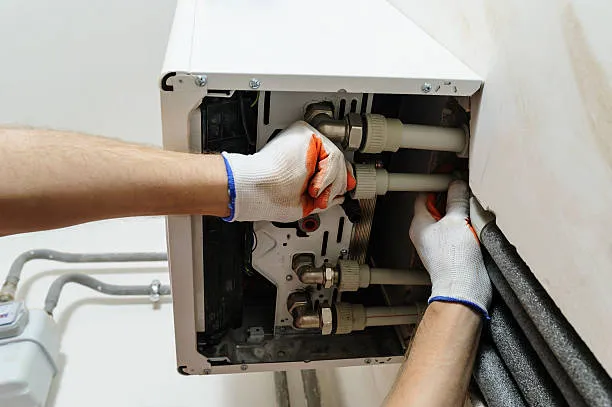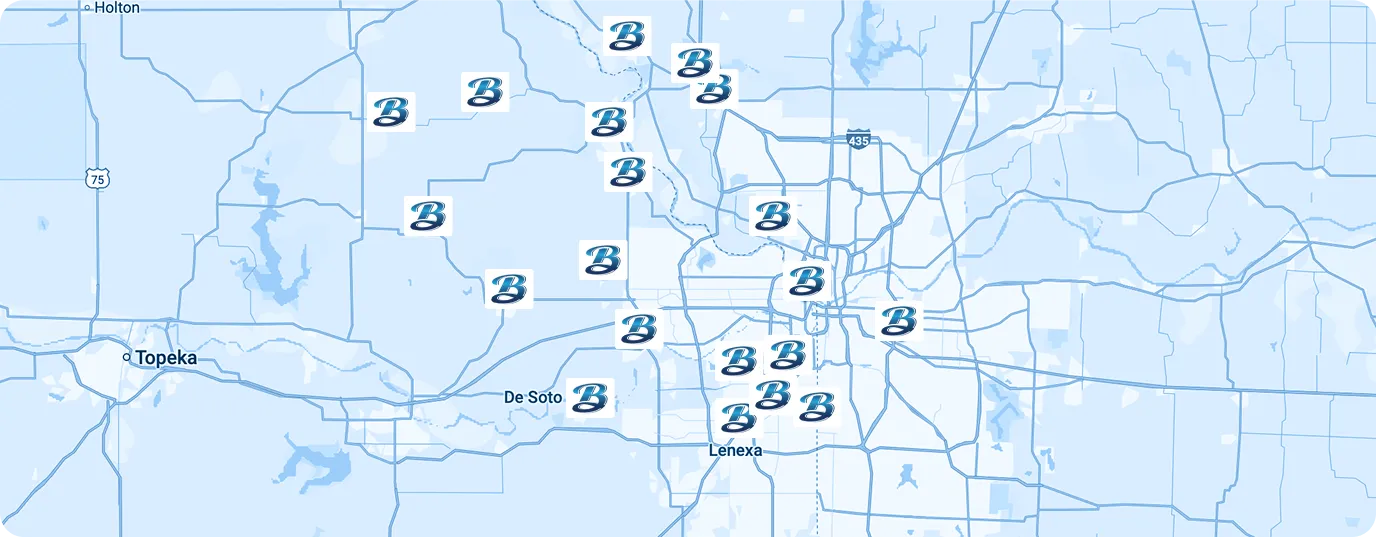Heating Tune-Up in Bonner Springs, KS
A professional heating tune-up in Bonner Springs, KS keeps furnaces and heat pumps safe, efficient, and reliable by addressing common regional issues such as dirty filters, ignition problems, and CO risk. It outlines a thorough inspection checklist, the diagnostic steps technicians follow, typical maintenance actions, and how tune-ups fit with local membership programs. Regular annual visits extend equipment life, improve safety, and help prevent costly breakdowns during cold seasons for Bonner Springs homes.
Heating Tune-Up in Bonner Springs, KS
A seasonal heating tune-up is the most cost-effective step homeowners in Bonner Springs, KS can take to keep their furnace or heat pump running safely, reliably, and efficiently through cold winters. With temperature swings, dusty winds off the plains, and older homes in the area relying on gas furnaces, a pre-season inspection prevents surprise breakdowns, reduces energy waste, and helps protect your family from safety hazards like carbon monoxide. This page explains what a professional heating tune-up includes, common issues we find in Bonner Springs homes, how technicians diagnose and fix problems, recommended timing and frequency, and how tune-ups integrate with membership programs.
Common heating tune-up issues in Bonner Springs, KS
Homeowners in this region commonly face the following heating problems that a tune-up can catch early:
- Dirty or clogged air filters that restrict airflow and force systems to run longer.
- Ignition or pilot failures on gas furnaces after a long idle season.
- Dust and debris on burners and heat exchangers leading to incomplete combustion and higher CO risk.
- Improper thermostat calibration causing uneven temperatures and short cycling.
- Worn blower motors, belts, or bearings that increase noise and reduce airflow.
- Loose electrical connections or corroded terminals that create reliability and safety risks.
- Reduced system efficiency from dirty coils or restricted ducts, common in older Bonner Springs homes.
What a professional heating tune-up includes
A comprehensive heating tune-up is a methodical inspection and maintenance procedure. Typical checklist items include:
- Burner and heat exchanger inspection for cracks, corrosion, soot, or signs of inefficient combustion
- Combustion and carbon monoxide testing to verify safe operating levels
- Thermostat calibration and control system check for proper cycling and setpoint accuracy
- Filter inspection and replacement recommendation or service for standard filters
- Lubrication of moving parts such as blower motors and bearings where applicable
- Electrical system checks including voltage, amperage, and tightening of terminals
- Blower assembly and blower wheel cleaning to restore airflow
- Flue and vent inspection for obstructions, corrosion, and proper draft
- Safety control testing including limit switches and rollout sensors
- Gas pressure and burner performance checks on gas systems
- Inspection of ignition systems and flame sensors; cleaning or adjustment if required
- Airflow measurement and basic duct inspection for visible leaks or restrictions
Diagnostic approach and the tune-up process
A professional tune-up follows a clear diagnostic sequence:
- System startup and observation: Technician listens and watches for unusual sounds, smells, or startup delays.
- Safety tests first: CO testing and safety control checks confirm the system is safe to operate.
- Performance measurements: Combustion efficiency, gas pressure, airflow, and electrical loading are measured and recorded.
- Targeted cleaning and adjustments: Burners, flame sensors, blower wheel, and filters are cleaned; belts and bearings adjusted or lubricated.
- Controls and thermostats: Calibrate and verify control sequences and thermostat responsiveness.
- Report and recommendations: Technician documents findings, explains any repairs needed, and outlines suggested next steps to optimize longevity and efficiency.
Technicians aim to correct minor issues on the spot when possible and provide clear options when more extensive repairs or replacements are recommended.
Repairs and solutions commonly performed after a tune-up
When a tune-up uncovers problems, common professional solutions include:
- Filter replacement and installation of higher-quality filters for improved indoor air quality
- Cleaning or replacement of flame sensors, ignitors, or burners
- Sealing or repairing minor duct leaks and improving airflow balance
- Tightening or replacing electrical components and updating worn connectors
- Replacing worn belts, bearings, or blower motors to restore proper airflow
- Addressing flue or vent problems to ensure safe combustion gas evacuation
- These repairs restore system reliability and often prevent emergency service calls during the coldest nights.
Benefits: reliability, efficiency, safety, and longevity
Regular tune-ups deliver measurable homeowner benefits:
- Increased reliability and fewer unexpected breakdowns during peak heating demand
- Better efficiency which reduces energy use and helps control heating costs
- Improved safety through verified combustion and CO testing and properly functioning safety controls
- Extended equipment life by reducing stress on components and preventing premature failures
- Maintains warranty compliance for many manufacturers that require seasonal maintenance
Recommended frequency and timing for Bonner Springs homes
- Annual tune-up before the heating season begins is recommended for most systems. Scheduling in early fall ensures your system is ready before sustained cold sets in.
- Homes with older equipment, heavy dust exposure, or a history of monthly cycling may benefit from two seasonal inspections per year.
- Heat pumps should receive tune-ups in both spring and fall to cover heating and cooling mode checks.
How tune-ups tie into membership programs
Many homeowners in the Bonner Springs area enroll in club or membership programs that include seasonal tune-ups as a core benefit. Membership arrangements typically:
- Schedule tune-ups automatically before each season so inspections are not forgotten
- Prioritize members for service during high-demand periods
- Include documented maintenance records that help preserve equipment warranties
- Often provide reduced diagnostic fees and preferred pricing on repairs for members
- A membership helps homeowners stay proactive, spreading maintenance costs and increasing total system uptime.
Local considerations for Bonner Springs homes
Bonner Springs experiences temperature swings and windy, dusty conditions that can accelerate filter clogging and indoor dust accumulation. Older gas furnaces are common in established neighborhoods, making combustion inspection and CO testing especially important. Homes near busy roads or construction may need higher-grade filtration and more frequent filter changes. Additionally, winter power outages make reliable, well-maintained equipment crucial for comfort and safety.
Maintenance tips to extend the benefit of a tune-up
- Replace disposable filters monthly during heavy heating use or switch to a high-efficiency pleated filter for longer life and better air quality.
- Keep return vents and registers unobstructed to maintain proper airflow.
- Note and report odd noises, odors, or cycling patterns as soon as they appear rather than waiting for a service visit.
- Keep the area around the furnace or heat pump outdoor unit clear of debris, leaves, and snow.
A professional heating tune-up in Bonner Springs, KS is a practical investment in safety, comfort, and long-term savings. Regular seasonal maintenance identifies small problems before they become costly failures, improves system efficiency, and provides peace of mind during the region’s cold months.









